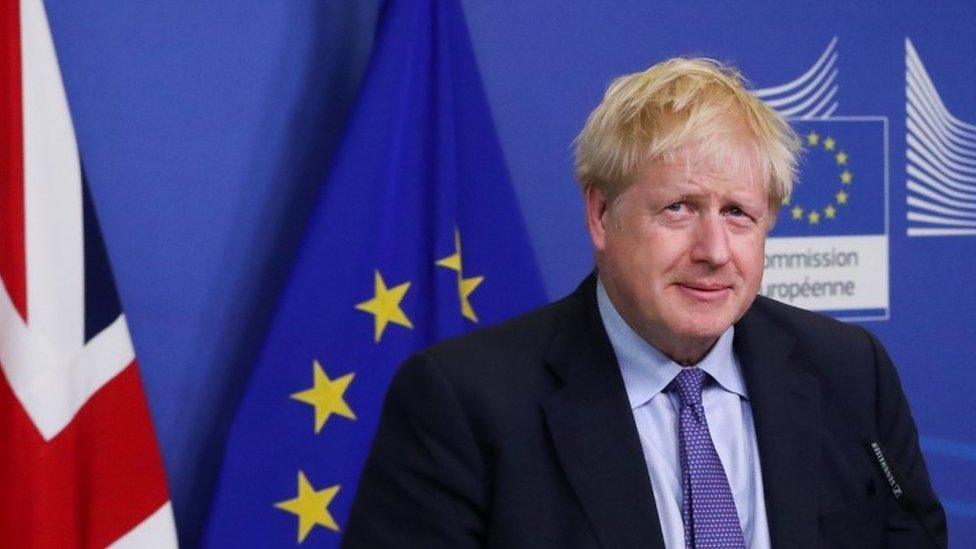Brexit deal stand-off threatens trade talks
- Published

A bust-up with Brussels was always a possible feature of this autumn.
But when EU top brass and their officials arrived in London this morning, it was not inevitable that it would come today.
There were whispers yesterday that one or other of the sides might flounce out - but "wait and see" seemed the order of the day.
Late last night, chatter from sources in Brussels suggested they were unwilling to rise to what they see as the UK's provocation, to "take the bait", as it was expressed to me.
But after two sets of meetings today - one on the trade talks and the other on the government's plans to rewrite part of the agreed treaty from last year - there has been nothing less than a diplomatic explosion.
The EU issued a statement that was about as furious as any I've ever seen in this kind of context - demanding that the UK government withdraw the controversial plans to override the deal done with the EU last year by the end of the month, and threatening to take legal action if it doesn't happen.
Essentially saying that there's no chance of trade talks, and hence no chance of a deal, unless the UK backs down.
At this stage however, anyone with more than a passing acquaintance with this government would know that's inconceivable.
It is not, of course, impossible that further down the track the government may give way, or concede in quite a big way.
But right now, the chances of a move are slim to none. The chances therefore of talks, that matter so much to our economy, moving very far are almost zilch - and therefore the chances of a deal are falling away.
Remember last autumn, day-after-day-after-day the language between the two sides became more heated, brinkmanship more risky, the government's moves more audacious, and then, suddenly, a deal was done.
And despite the EU's extraordinary statement, and serious stumbling blocks in the talks, the UK chief negotiator, Lord Frost, has now announced that the trade talks will still go ahead next week.
The added complication here is that the government can't be sure at all that their plans to change the Northern Irish parts of the existing treaty will pass through Parliament.
Resistance in the Lords is inevitable and while it's hard to gauge the final number, there is likely to be a rebellion from Tory MPs too.
But Downing Street right now is confident that MPs will back the plans in the end.
Willing to forgo a trade deal - if that's what their changes mean - rather than back down on their plans, having chosen to take what insiders admit is a nuclear option, for now, they are willing to stand back and watch the explosion.
